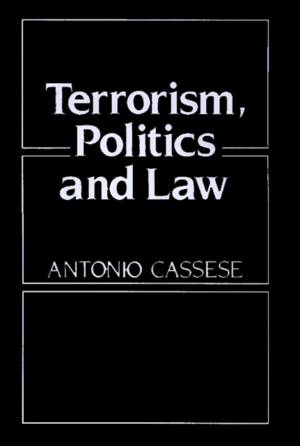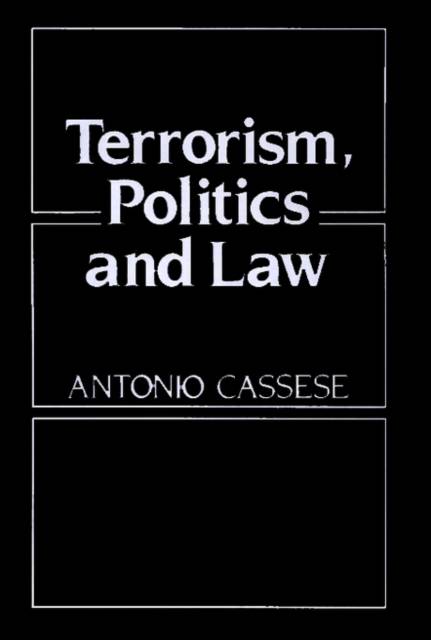
- Afhalen na 1 uur in een winkel met voorraad
- In januari gratis thuislevering in België
- Ruim aanbod met 7 miljoen producten
- Afhalen na 1 uur in een winkel met voorraad
- In januari gratis thuislevering in België
- Ruim aanbod met 7 miljoen producten
Omschrijving
This book is a highly original analysis of terrorism and its implications for international law and politics. Terrorism has introduced an explosive element into international politics. It can trigger crises which strain the relations between states - a strain which can reach breaking point if states allow their national interests to prevail.
Cassese focuses on the Achille Lauro affair and uses this as an episode to illuminate the behaviour of modern states in response to terrorism. On 7 October 1985, four members of the Palestine Liberation Front hijacked an Italian transatlantic liner, the Achille Lauro, as it was sailing on a pleasure cruise off the coast of Egypt. In the days that followed, one dangerous and unforeseen event followed another, and the lives of the hostages hung by a thread. As states hastened to respond to unanticipated events they hovered on the brink of crisis and conflict. The United States was first swept by fury at the murder of one of its citizens, then by euphoria as its fighter planes intercepted an Egyptian airliner thought to be carrying the terrorists.
Using a wealth of unpublished documents and material collected from the interviews with government officials and diplomats concerned in the affair, Cassese reconstructs this complex series of events and examines the actions of the states involved - the USA, Italy and Egypt among others. He shows how a range of pressures - military, diplomatic, psychological and legal - led various states to behave as they did, also explaining why some states, in particular the USA, allowed political considerations to override legal imperatives.
This book, by one of the leading authorities in international law, will be praised as a major contribution to current debates on the nature of terrorism and its implications for the practices and policies of nation-states.
Specificaties
Betrokkenen
- Auteur(s):
- Uitgeverij:
Inhoud
- Aantal bladzijden:
- 162
- Taal:
- Engels
Eigenschappen
- Productcode (EAN):
- 9780745606187
- Verschijningsdatum:
- 8/01/1991
- Uitvoering:
- Hardcover
- Formaat:
- Genaaid
- Afmetingen:
- 153 mm x 228 mm
- Gewicht:
- 408 g

Alleen bij Standaard Boekhandel
Beoordelingen
We publiceren alleen reviews die voldoen aan de voorwaarden voor reviews. Bekijk onze voorwaarden voor reviews.









